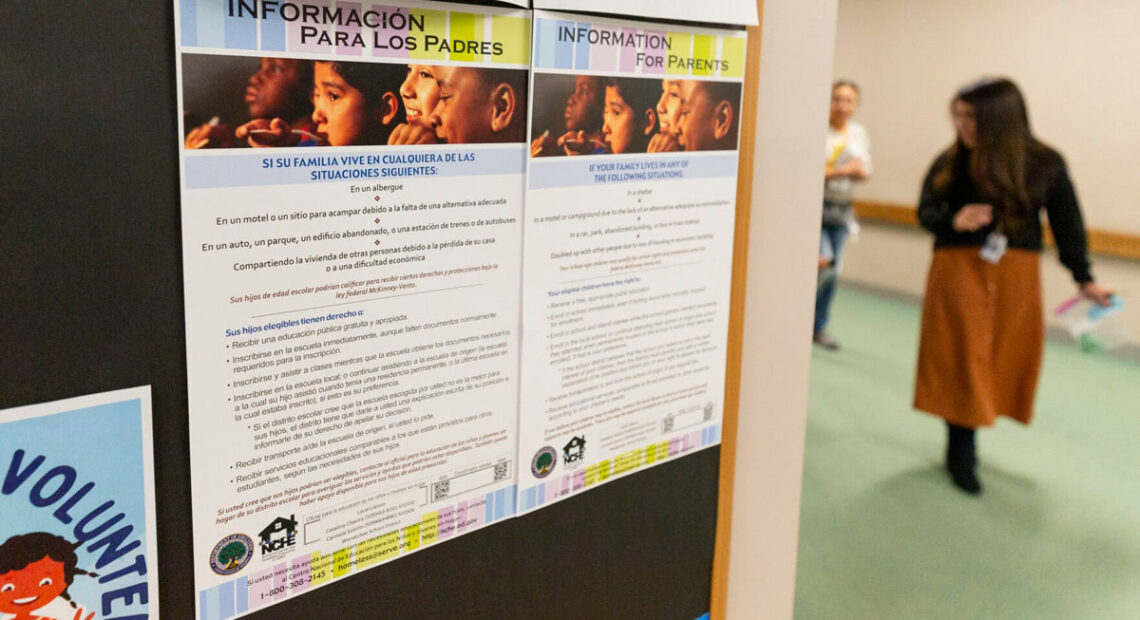
WA, local schools will not share student information with immigration enforcement
Listen
(Runtime 1:04)
Read
Washington state schools said they will not share student information with federal immigration authorities in regards to a student’s legal documentation status.
The Office of Superintendent of Public Instruction guidelines say federal law enforcement must obtain a judicial order, and the school must notify the parents, allowing the family sufficient time to pursue a protective order if necessary.
President Donald Trump said he plans to increase enforcement efforts to remove undocumented immigrants from the United States. His administration removed federal policies that prevented officers enforcing immigration laws from arresting immigrants at locations such as hospitals, schools and churches.
State Superintendent of Public Instruction Chris Reykdal said at a Jan. 16 press conference, in anticipation of Trump’s immigration policies, that Washington state is willing to work with the Trump administration, but he emphasized that the state will not cooperate with federal authorities.
“I want to be clear that Washington has an approach to the Trump administration. If it is truly about flexibility for states, we’re all in. If it’s truly about getting us the equitable resources we pay in federal taxes we’re all in. If it is about stepping on the civil rights of children, however, we’re not in and we’re going to fight it,” said Reykdal. “Our schools are not immigration enforcement organizations.”
The state of Washington has more than 16,000 recipients of Deferred Action for Childhood Arrivals (DACA). According to an estimate by the Office of Homeland Security, Washington state was home to more than 340,000 undocumented immigrants in 2022.
The U.S. Supreme Court’s ruling in the 1982 case Plyler v. Doe ensures that undocumented children and young adults have the same right to attend public schools as U.S. citizens and permanent residents.
Under the court ruling, schools cannot deny admission, require students or parents to disclose or document their immigration status, or require Social Security numbers in a way that could expose immigration status.
The Wenatchee School District superintendent, Kory Kalahar, said there are protocols in place for Immigration and Customs Enforcement on school property.
“Schools are one of the safest places for our students, no matter what is happening. There are a lot of protocols in place for a public official to enter our buildings,” said Kalahar.
Kalahar said the situation depends on whether ICE agents are on school property or outside of it. He said administrators have the right to question ICE’s presence and let agents know that their presence has made the campus feel threatened.
“Our building administrators, our staff are often directing traffic in parking lots, making sure kids get safely to a parent or family member’s vehicle or on a bus. They are aware of what is happening outside and where kids are going. They would take appropriate action to what is going on depending on the situation,” said Wenatchee School District spokeswoman Diana Haglund.
Alfonso Lopez, the director of Hispanic and Latino relations for the Wenatchee School District, said he has spoken with families who told him they are afraid to come to school.
“From the Latino perspective, I can sense the fear of students coming to school during this transition time. We expect some families won’t send kids to school the first week of school because of that fear. I can reassure what my colleagues are saying, that schools are a safe place, and we want to address the needs for this group (undocumented students) but also for the needs of any group of students. Schools are prepared,” said Lopez.
Kalahar and the administrative team acknowledged that some families may hesitate to come to school, and emphasized their commitment to supporting families’ needs.
The district has a family advocate program that fosters home-school partnerships by maintaining communication between families and schools. Advocates collaborate with counselors, teachers and administrators to encourage parent and student engagement with schools and community resources. They also help coordinate parent groups, advisory committees and educational activities to strengthen family involvement.
“On the academic side of things as well. Missing any day is hugely impactful for students,” Kalahar said. “It is ultimately a parent’s and family’s decision on what they feel is safest. We will support families however we can when their students return.”
Reneé Diaz may be contacted at renee.diaz@wenatcheeworld.com. Collaborative reporting by The Wenatchee World, NWPB and WSU’s Murrow College of Communication Newsroom Fellowship.
















